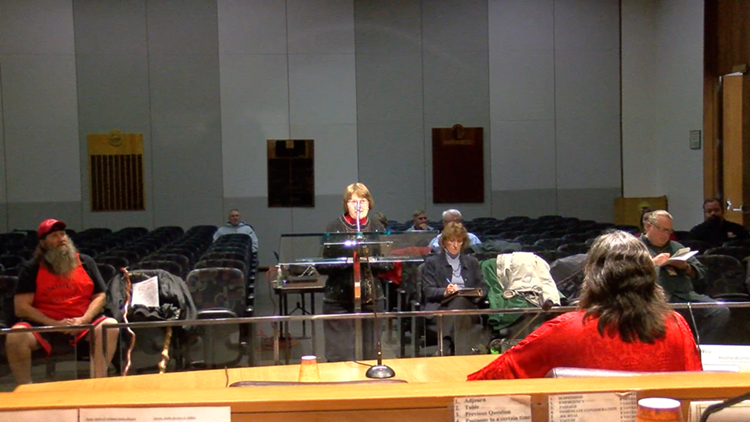TOLEDO, OH (WTOL) - The Ohio EPA held their Annual Toledo Harbor Dredging Plan meeting Thursday evening.The crowd was light but passionate at the City Council Chambers at One Government Center.
The U.S. Army Corps of Engineers has applied to place a large amount, 800,000 cubic yards of material into Lake Erie, about 3.5 miles from the Toledo Harbor lighthouse.
The EPA will test to see if the dredging materials are clean enough to go back into the lake. In the past, that has not been a problem.
In 2014, the Army Corps produced findings from a study determining the disposal of the dredging into the lake does not cause or contribute to the algae blooms.
"Ohio EPA has been working. We have a ban on open lake disposal in 2020. So we've been working with the Army Corps and the Port Authority to come up with alternatives so that in 2020 we will no longer be allowed to put it into the lake," Elizabeth Wick, Manager of the Division of Surface Water for the Northwest Ohio branch of the Environmental Protection Agency said.
Last year, the Army Corps contributed 35,000 cubic yards of dredge material to a beneficial use project with the Port Authority.
This year, that number could potentially almost double.
The City is also considering using this material as top soil for demolished building sites.The main problem with these alternatives is the cost of transport.
David Neuendorff is a concerned citizen who has been following regulations of the lake and the importance of keeping Toledoans safe from harmful toxins in our drinking water for years. He has done his homework and came to the meeting prepared to speak for the full 5 minutes that he was allowed.
"The state stops the EPA in 2020. It's really not true. They have a provision in there, the Department of Natural Resources in agreement with the head of the Ohio EPA that that says well, it's too expensive, we're not going to do it," Neuendorff said.
The Ohio EPA will accept written comments on this issue through April 5 and will review the information and make their recommendation from there.
"Well, it's going to cost more money. Either we pollute our lake or we clean it up," said Neuendorff.
Anyone may submit written comments or request to be placed on a mailing list for information by writing to: Ohio EPA, Division of Surface Water, Permits Processing Unit, P.O. Box 1049, Columbus, Ohio 43216 1049 or emailing epa.dswcomments@epa.ohio.gov. The application and related materials are available for review online.



